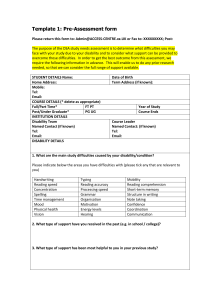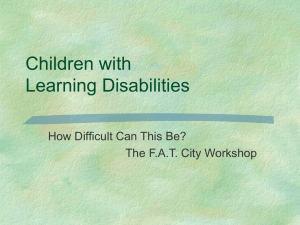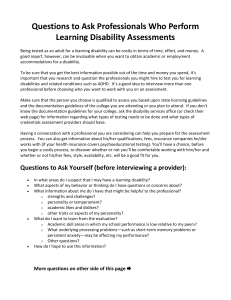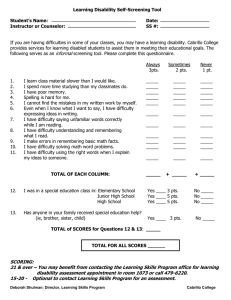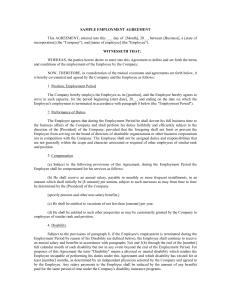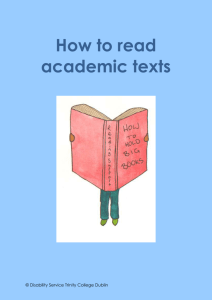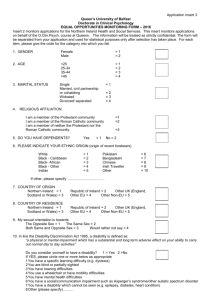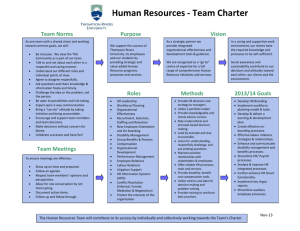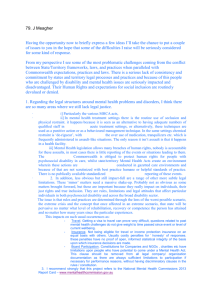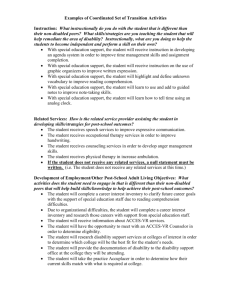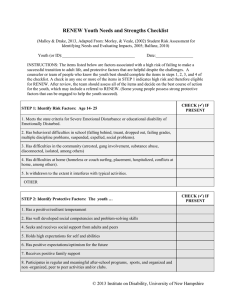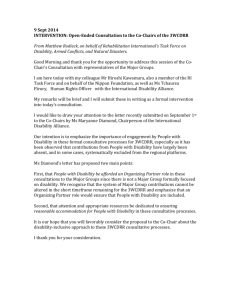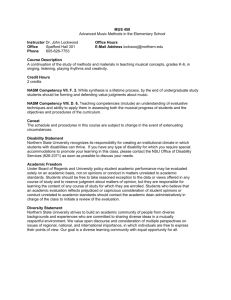Disability in Written Expression
advertisement
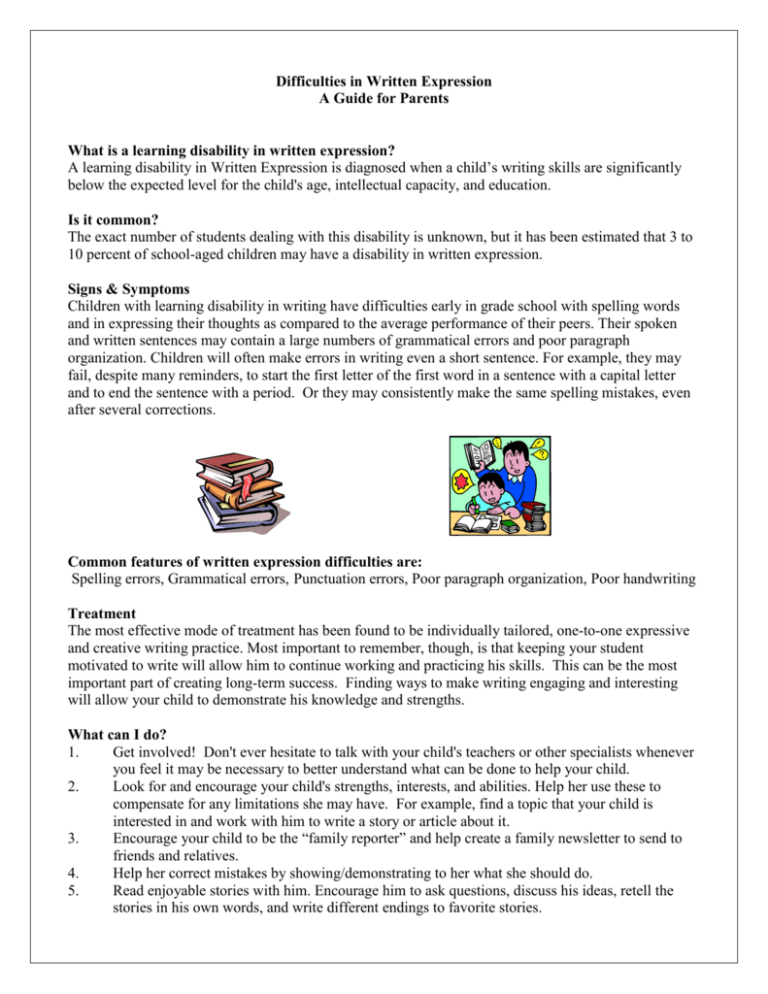
Difficulties in Written Expression A Guide for Parents What is a learning disability in written expression? A learning disability in Written Expression is diagnosed when a child’s writing skills are significantly below the expected level for the child's age, intellectual capacity, and education. Is it common? The exact number of students dealing with this disability is unknown, but it has been estimated that 3 to 10 percent of school-aged children may have a disability in written expression. Signs & Symptoms Children with learning disability in writing have difficulties early in grade school with spelling words and in expressing their thoughts as compared to the average performance of their peers. Their spoken and written sentences may contain a large numbers of grammatical errors and poor paragraph organization. Children will often make errors in writing even a short sentence. For example, they may fail, despite many reminders, to start the first letter of the first word in a sentence with a capital letter and to end the sentence with a period. Or they may consistently make the same spelling mistakes, even after several corrections. Common features of written expression difficulties are: Spelling errors, Grammatical errors, Punctuation errors, Poor paragraph organization, Poor handwriting Treatment The most effective mode of treatment has been found to be individually tailored, one-to-one expressive and creative writing practice. Most important to remember, though, is that keeping your student motivated to write will allow him to continue working and practicing his skills. This can be the most important part of creating long-term success. Finding ways to make writing engaging and interesting will allow your child to demonstrate his knowledge and strengths. What can I do? 1. Get involved! Don't ever hesitate to talk with your child's teachers or other specialists whenever you feel it may be necessary to better understand what can be done to help your child. 2. Look for and encourage your child's strengths, interests, and abilities. Help her use these to compensate for any limitations she may have. For example, find a topic that your child is interested in and work with him to write a story or article about it. 3. Encourage your child to be the “family reporter” and help create a family newsletter to send to friends and relatives. 4. Help her correct mistakes by showing/demonstrating to her what she should do. 5. Read enjoyable stories with him. Encourage him to ask questions, discuss his ideas, retell the stories in his own words, and write different endings to favorite stories.
